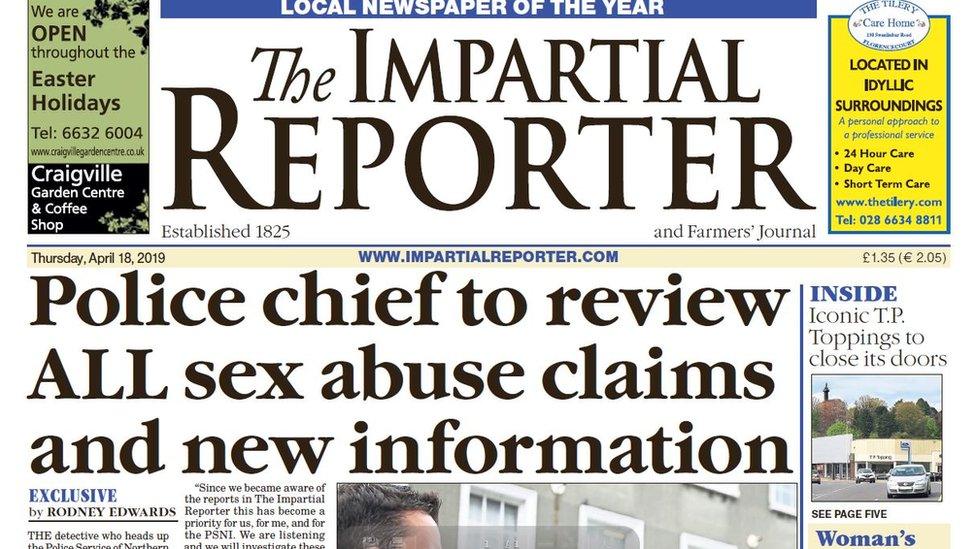Fermanagh child abuse: Orange Order 'did nothing' over claims
- Published
Sara tells BBC reporter Julian Fowler she was asked to pray for forgiveness after reporting her abuse
Two women who have said they were abused by Orangemen as children claim the Orange Order "did nothing" when it was made aware of the allegations.
It is the latest revelation made in the Impartial Reporter newspaper, external as part of a long-running investigation into historic abuse in County Fermanagh.
More than 50 victims have named 60 alleged abusers. A police taskforce has been set up to investigate the claims.
The Orange Order said it would fully co-operate with any investigation.
The two alleged victims said they were abused by several individuals who were Orangemen and that the Orange Order was made aware of the allegations.
They claim some of the abuse, which dates back several decades, took place in and around Orange halls during band practice and after parades.

What is the Orange Order?
Fraternal organisation formed in 1795, when founding members swore to defend the Protestant faith
Claims to have tens of thousands of members, primarily in Ireland
Holds its marching season from April to August every year, with the centrepiece on 12 July
Twelfth of July parades commemorate the Dutch King William of Orange's victory over the Catholic King James II at the Battle of the Boyne in Ireland in 1690
Read more: What is the Orange Order?

Impartial Reporter deputy editor Rodney Edwards said: "Victims believe that there was a cover up within the Orange Order, that certain individuals were protected because of who they were.
"One of the alleged victims says that she was told that she was opening a can of worms by making these allegations and that she was threatening the name of the institution."
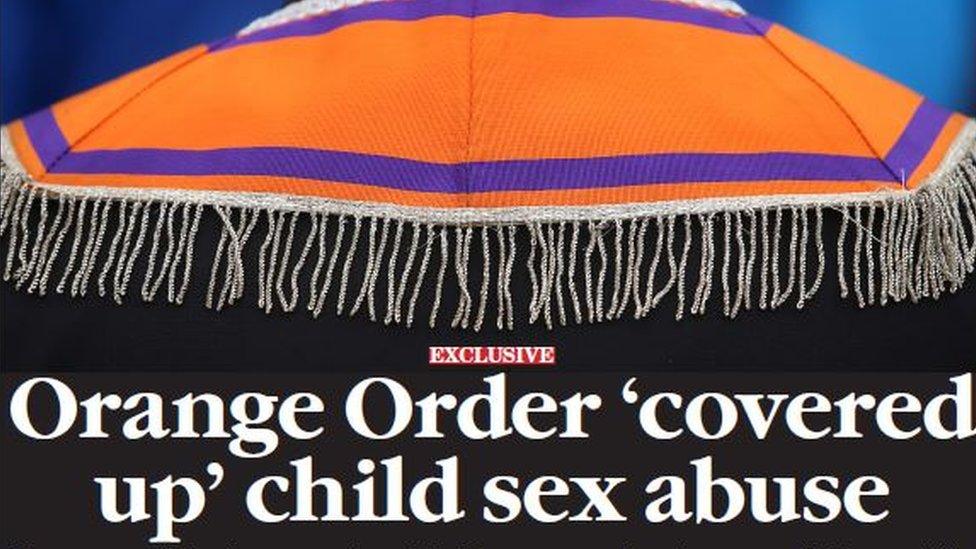
The allegations carried in the Impartial Reporter newspaper are the latest to emerge as part of a long-running investigation
One of the two alleged victims, referred to as Sara (not her real name), also said she was raped by a member of the Orange Order after singing in church.
She told BBC News NI that she approached church leaders and the Orange Order in County Fermanagh but they did "absolutely nothing".
'No punishment given out'
"The church sent me to a religious counsellor, I believe his title was, and he wanted to teach me how to pray for forgiveness so I never went back," she said.
"I went to one session - and at that point I was suicidal - and this man was asking me to pray for forgiveness and that was like another slap in the face."
Sara said the people she told were "out of their depth".
"I'm not making excuses for them but people did not know what to do.
"I just wanted what had happened to be acknowledged and some form of punishment and then awareness - and that didn't happen.
"There was no punishment that I know of given out to the perpetrators."
She added: "As far as I was concerned, I was being punished because I wasn't being listened to again.
"The more that happened the more you withdraw and the less likely you are to speak out, ever.
"So I was lucky - in so many respects I am one of the lucky ones."
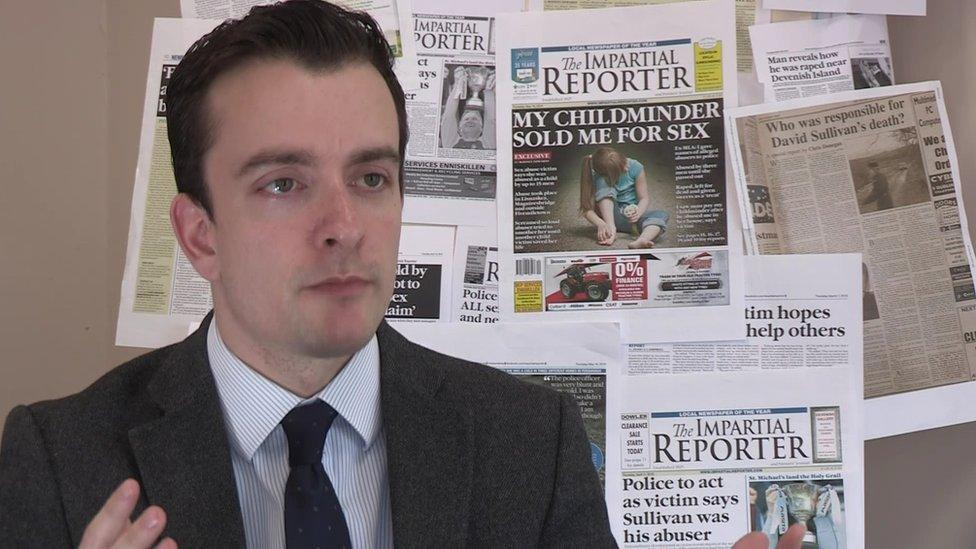
Numerous alleged victims have told their story to journalist Rodney Edwards
A spokesperson for the Grand Orange Lodge of Ireland said the allegations were "very serious".
"The Orange Institution will fully co-operate with any PSNI investigation.
It added that no further public comment would be made at this point.
'Don't know what's happening'
Sara gave statements to the police in the late 1990s but said the investigation went nowhere.
"People were questioned and eventually I was asked to go up to Belfast to meet the DPP (director of public prosecutions) and was told that lack of evidence, an old case - 'Sorry, we're really sorry but there's nothing we can do' - and that was it, go home, " she said.
Sara has been told by the new Police Service of Northern Ireland (PSNI) taskforce that it is re-examining her allegations.
"The police contacted me three months ago to tell me that they were reopening my case but I've yet to be interviewed," she added.
"I don't know if they've interviewed any of the people I made allegations against - I just don't know what's happening."
The PSNI confirmed that both cases had previously been investigated and subsequently directed upon by the Public Prosecution Service.
"Both cases are being reviewed to ensure all lines of necessary inquiry were completed at the time and to determine if any new evidence is now available," added the PSNI.
"Detectives have maintained contact with the victims throughout and will continue to do so.
"The public should be assured that detectives... treat every allegation of child sexual abuse seriously, whether it happened recently or many years ago."
It said that officers can be contacted on 101 or through a dedicated email address - historicalabuse@psni.pnn.police.uk - where victims will be put in contact with a specially-trained officer.
- Published15 August 2019
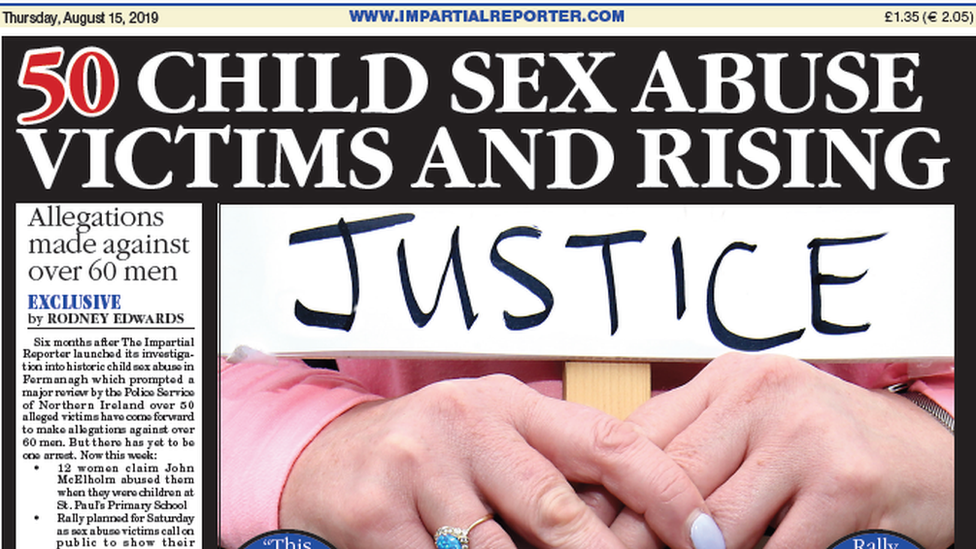
- Published8 August 2019
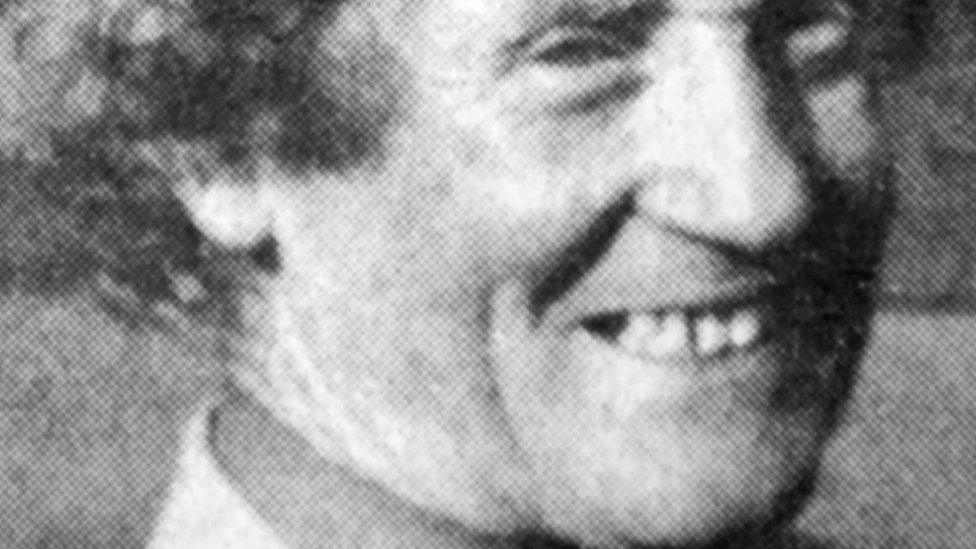
- Published17 May 2019
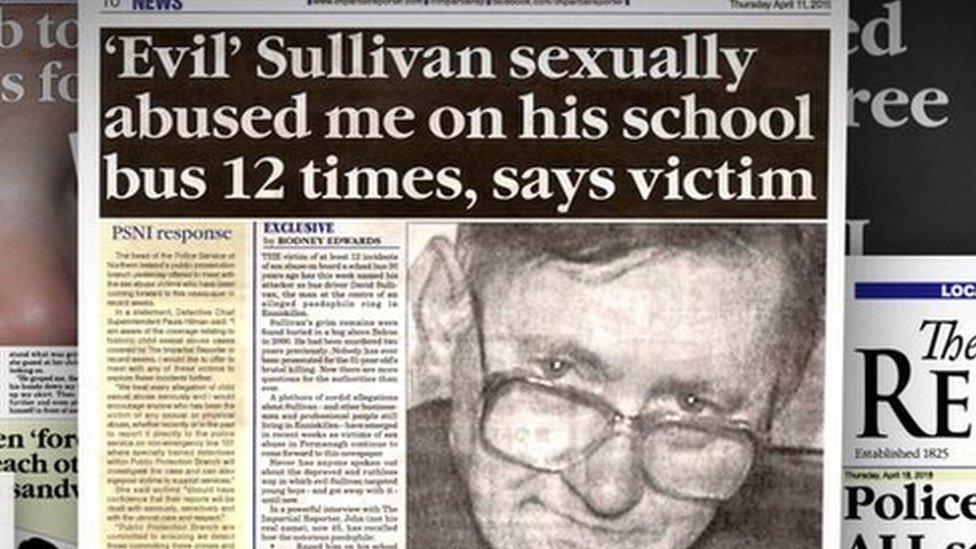
- Published3 May 2019
